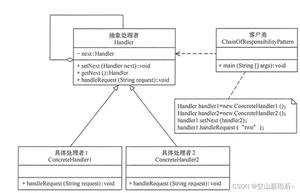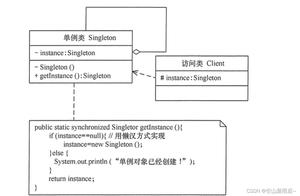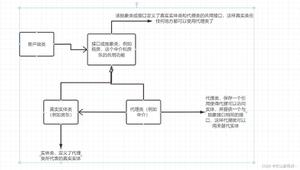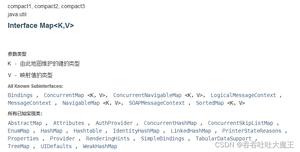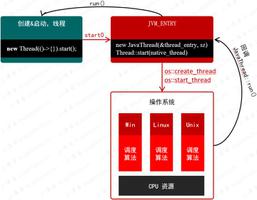Java使用策略模式解决商场促销商品问题示例
本文实例讲述了Java使用策略模式解决商场促销商品问题。分享给大家供大家参考,具体如下:
一 模式定义
策略模式:定义一系列的算法,将每一种算法封装起来并可以相互替换使用,策略模式让算法独立于使用它的客户应用而独立变化。
二 模式举例
1 模式分析
我们借用商场促销商品来说明这一模式。
2 策略模式静态类图
3 代码示例
3.1 创建策略接口一IStrategy
package com.demo.strategy;
/**
* 策略接口
*
* @author
*
*/
public interface IStrategy {
/**
* 计算实际价格方法
*
* @param consumePrice
* 消费金额
* @return
*/
public double realPrice(double consumePrice);
}
3.2 八折促销策略一RebateStrategy
package com.demo.strategy;
/**
* 打八折商品促销策略
*
* @author
*
*/
public class RebateStrategy implements IStrategy {
private final double rate;
/**
* 构造方法设置打折率
*/
public RebateStrategy() {
this.rate = 0.8;
}
/**
* 计算实际价格方法
*
* @param consumePrice
* 消费金额
* @return
*/
public double realPrice(double consumePrice) {
return consumePrice * this.rate;
}
}
3.3 满1000减200促销策略一ReduceStrategy
package com.demo.strategy;
/**
* 满1000减200 商品促销策略
*
* @author
*
*/
public class ReduceStrategy implements IStrategy {
/**
* 计算实际价格方法
*
* @param consumePrice
* 消费金额
* @return
*/
public double realPrice(double consumePrice) {
if (consumePrice >= 1000) {
return consumePrice - 200;
} else {
return consumePrice;
}
}
}
3.4 200以上部分打8折促销策略一PromotionalStrategy
package com.demo.strategy;
/**
* 满200,高于200部分打八折 商品促销策略
*
* @author
*
*/
public class PromotionalStrategy implements IStrategy {
/**
* 计算实际价格方法
*
* @param consumePrice
* 消费金额
* @return
*/
public double realPrice(double consumePrice) {
if (consumePrice > 200) {
return 200 + (consumePrice - 200) * 0.8;
} else {
return consumePrice;
}
}
}
3.5 创建上下文环境一Context
package com.demo.context;
import java.math.BigDecimal;
import com.demo.strategy.IStrategy;
/**
* 上下文环境
*
* @author
*
*/
public class Context {
// 当前策略
private IStrategy strategy;
// 设置当前策略
public void setStrategy(IStrategy strategy) {
this.strategy = strategy;
}
// 使用策略计算价格
public double cul(double consumePrice) {
// 使用具体商品促销策略获得实际消费金额
double realPrice = this.strategy.realPrice(consumePrice);
// 格式化保留小数点后1位,即:精确到角
BigDecimal bd = new BigDecimal(realPrice);
bd = bd.setScale(1, BigDecimal.ROUND_DOWN);
return bd.doubleValue();
}
}
3.6 消费者购物消费一Client
package com.demo;
import java.util.Random;
/**
* 客户端应用程序
*
* @author
*
*/
public class Client {
/**
* @param args
*/
public static void main(String[] args) {
// 创建上下问环境对象实例
// Context context = new Context();
// 随机数对象
Random random = new Random();
for (int i = 0; i < 10; i++) {
// 产生随机数的方式判断使用何种促销策略
int x = random.nextInt(3);
// 消费价格也是由随机数产生的(不能为0)
double consumePrice = 0;
while ((consumePrice = random.nextInt(2000)) == 0) {
}
double realPrice = consumePrice;
switch (x) {
case 0:
// 打八折商品
// context.setStrategy(new RebateStrategy());
realPrice = consumePrice * 0.8;
break;
case 1:
// 满200,高于200部分打八折 商品
// context.setStrategy(new PromotionalStrategy());
if (consumePrice > 200) {
realPrice = 200 + (consumePrice - 200) * 0.8;
}
break;
case 2:
// 满1000减200 商品
// context.setStrategy(new ReduceStrategy());
if (consumePrice >= 1000) {
realPrice = consumePrice - 200;
}
break;
}
System.out.print("【"
+ (x == 0 ? "打八折" : (x == 1 ? "高于200部分打八折"
: (x == 2 ? "满1000减200" : ""))) + "】商品:");
System.out.println("原价:" + consumePrice + " - 优惠后价格:" + realPrice);
}
}
}
4 运行结果
【满1000减200】商品:原价:908.0 - 优惠后价格:908.0
【满1000减200】商品:原价:1129.0 - 优惠后价格:929.0
【满1000减200】商品:原价:829.0 - 优惠后价格:829.0
【打八折】商品:原价:518.0 - 优惠后价格:414.40000000000003
【满1000减200】商品:原价:1230.0 - 优惠后价格:1030.0
【打八折】商品:原价:106.0 - 优惠后价格:84.80000000000001
【满1000减200】商品:原价:1134.0 - 优惠后价格:934.0
【高于200部分打八折】商品:原价:664.0 - 优惠后价格:571.2
【满1000减200】商品:原价:564.0 - 优惠后价格:564.0
【满1000减200】商品:原价:730.0 - 优惠后价格:730.0
三 该模式设计原则
1 "开-闭"原则
2 单一职责原则
四 使用场合
1 当多个类的表现行为不同,需要在运行时刻动态选择具体执行的行为的时候。
2 需要在不同情况下使用不同策略,或者策略还可能在未来用其它方式实现的时候。
3 需要隐藏具体策略的实现细节,各个具体策略彼此独立的时候。
4 当一个类中出现了多种行为,而且在一个操作中使用多个条件分支来判断使用多种行为的时候,可以使用策略模式将各个条件分支的动作植入具体策略中实现。
五 策略模式静态类图
更多java相关内容感兴趣的读者可查看本站专题:《Java面向对象程序设计入门与进阶教程》、《Java数据结构与算法教程》、《Java操作DOM节点技巧总结》、《Java文件与目录操作技巧汇总》和《Java缓存操作技巧汇总》
希望本文所述对大家java程序设计有所帮助。
以上是 Java使用策略模式解决商场促销商品问题示例 的全部内容, 来源链接: utcz.com/z/349706.html

